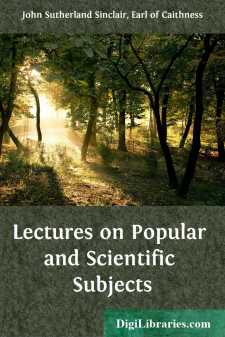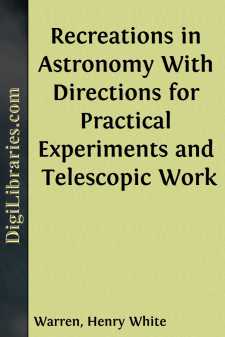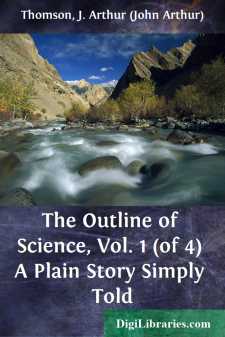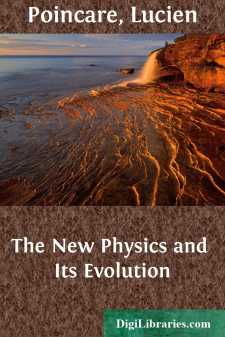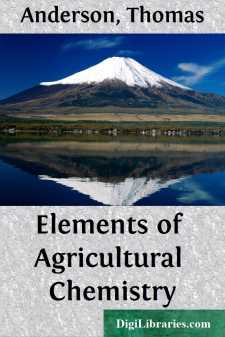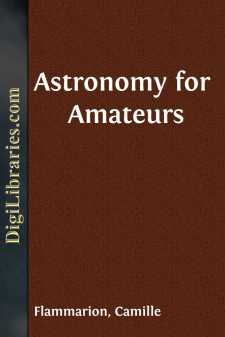Science
- Astronomy 18
- Biology 40
- Chemistry 13
- Electricity 1
- General 38
- History 6
- Light 1
- Paleontology 2
- Philosophy & Social Aspects 1
- Physics 3
- Relativity 2
- Study & Teaching 1
- Waves & Wave Mechanics 1
Science Books
Sort by:
ON THE ADVISABLENESS OF IMPROVING NATURAL KNOWLEDGE. This time two hundred years ago—in the beginning of January, 1666—those of our forefathers who inhabited this great and ancient city, took breath between the shocks of two fearful calamities, one not quite past, although its fury had abated; the other to come. Within a few yards of the very spot on which we are assembled, so the tradition runs,...
more...
COAL AND COAL-MINES. There are few subjects of more importance, and few less known or thought about, than our coal-mines. Coal is one of our greatest blessings, and certainly one originating cause of England's greatness and wealth. It has given us a power over other nations, and vast sums of money are yearly brought to our country from abroad in exchange for the coal we send. Nearly £17,000,000...
more...
Page 3 RECREATIONS IN ASTRONOMY. I. CREATIVE PROCESSES. During all the ages there has been one bright and glittering page of loftiest wisdom unrolled before the eye of man. That this page may be read in every part, man's whole world turns him before it. This motion apparently changes the eternally stable stars into a moving panorama, but it is only so in appearance. The sky is a vast, immovable...
more...
CHAPTER I Other worlds and their inhabitants are remarkably popular subjects of speculation at the present time. Every day we hear people asking one another if it is true that we shall soon be able to communicate with some of the far-off globes, such as Mars, that circle in company with our earth about the sun. One of the masters of practical electrical science in our time has suggested that the...
more...
Gallick Reports: Or, A Collection of Criminal Cases adjudg'd in the Courts of Judicature in France. In which is Comprized, An Account of Arnold du Tilh, an Impostor, who deceived a Man's Wife and Relations, and puzzled, for a long Time, the Parliament of France. Memoirs of the famous Madam de Brinvilliers, who poisoned her Father, and two Brothers, and attempted the Life of her Sister,...
more...
THE NEW HEAVENS Go out under the open sky, on a clear and moon-less night, and try to count the stars. If your station lies well beyond the glare of cities, which is often strong enough to conceal all but the brighter objects, you will find the task a difficult one. Ranging through the six magnitudes of the Greek astronomers, from the brilliant Sirius to the faintest perceptible points of light, the...
more...
by:
Lucien Poincare
THE EVOLUTION OF PHYSICS The now numerous public which tries with some success to keep abreast of the movement in science, from seeing its mental habits every day upset, and from occasionally witnessing unexpected discoveries that produce a more lively sensation from their reaction on social life, is led to suppose that we live in a really exceptional epoch, scored by profound crises and illustrated by...
more...
by:
Thomas Anderson
INTRODUCTION. That the phenomena of vegetation are dependent on certain chemical changes occurring in the plant, by which the various elements of its food are elaborated and converted into vegetable matter, was very early recognised by chemists; and long before the correct principles of that science were established, Van Helmont maintained that plants derived their nourishment from water, while Sir...
more...
INTRODUCTION The Science of Astronomy is sublime and beautiful. Noble, elevating, consoling, divine, it gives us wings, and bears us through Infinitude. In these ethereal regions all is pure, luminous, and splendid. Dreams of the Ideal, even of the Inaccessible, weave their subtle spells upon us. The imagination soars aloft, and aspires to the sources of Eternal Beauty. What greater delight can be...
more...
CHAPTER I. A HALF-HOUR ON THE STRUCTURE OF THE TELESCOPE. There are few instruments which yield more pleasure and instruction than the Telescope. Even a small telescope—only an inch and a half or two inches, perhaps, in aperture—will serve to supply profitable amusement to those who know how to apply its powers. I have often seen with pleasure the surprise with which the performance even of an...
more...



